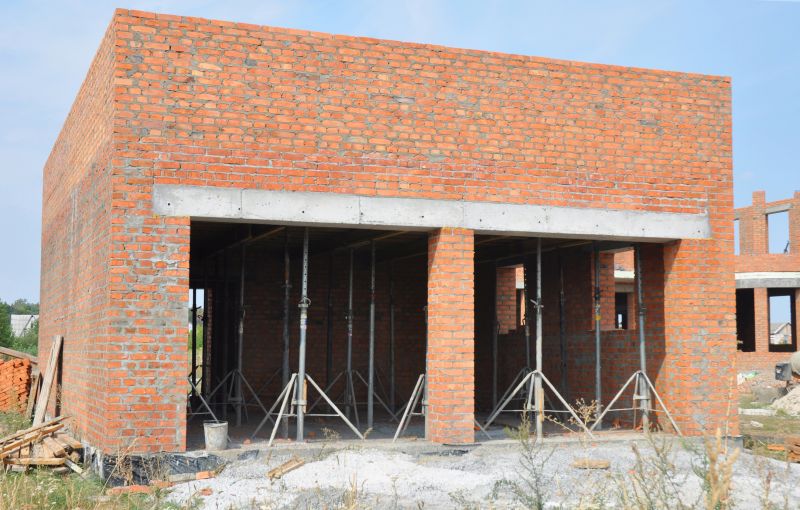Top-Rated Solutions For Garage Lintel Repairs To Maintain Building Strength
Choose from premium restoration products that help reinforce garage lintels, ensuring safety and longevity.
 Garage lintels play a crucial role in maintaining the structural integrity and aesthetic appeal of a garage opening. Over time, exposure to weather elements such as moisture, temperature fluctuations, and debris can lead to deterioration, cracking, or sagging of the lintel area. Restoring or reinforcing this component requires selecting appropriate products that offer durability, compatibility, and ease of installation. Proper restoration not only enhances the safety of the structure but also preserves its value, especially in cases where the lintel has experienced damage or wear.
Garage lintels play a crucial role in maintaining the structural integrity and aesthetic appeal of a garage opening. Over time, exposure to weather elements such as moisture, temperature fluctuations, and debris can lead to deterioration, cracking, or sagging of the lintel area. Restoring or reinforcing this component requires selecting appropriate products that offer durability, compatibility, and ease of installation. Proper restoration not only enhances the safety of the structure but also preserves its value, especially in cases where the lintel has experienced damage or wear.
Top Overall Option
High-Performance Structural Repair Mortar
This versatile repair mortar is designed for filling cracks, rebuilding damaged areas, and providing a durable surface finish. It adheres well to concrete and masonry substrates, offering a reliable solution for restoring garage lintels. Its ease of application and strong bonding properties make it suitable for both DIY enthusiasts and professional contractors.
Types of Products For Garage Lintel Restorations
Concrete Patching Compounds
Ideal for filling minor cracks and surface imperfections on concrete lintels, these compounds provide a smooth finish and adhesion.
Epoxy Injection Kits
Designed for structural crack repair, epoxy injection kits restore the integrity of cracked lintels and prevent further deterioration.
Fiber Reinforced Polymer (FRP) Wraps
These wraps add tensile strength to damaged lintels, providing reinforcement without significant added weight.
Metal Reinforcement Bars
Embedded within repair mortar or concrete, these bars strengthen the lintel structure against future loads.
Sealants and Caulks
Used to seal surface cracks and prevent water ingress, maintaining the integrity of the lintel.
Waterproofing Membranes
Applied over repaired areas to provide a moisture barrier, protecting the lintel from water damage.
Anchoring Adhesives
Used to secure new reinforcement elements or repair patches onto existing masonry surfaces.
Repointing Mortar
Suitable for restoring the mortar joints around the lintel, ensuring stability and aesthetic consistency.
Hydraulic Cement
Quick-setting cement ideal for stopping leaks and repairing damaged masonry in damp conditions.
Polyurethane Foam Injectors
Fill voids and stabilize loose masonry sections with expanding foam that adheres well to concrete and brick.
Reinforcing Mesh
Mesh used in conjunction with repair compounds to add tensile strength and prevent cracking.
Grout for Masonry
Fills gaps and reinforces the structure when restoring or repairing masonry lintels.
Protective Coatings
Applied after repairs to shield the lintel from environmental damage and corrosion.
Popular Choices
Widely used for sealing surface cracks and preventing water infiltration on masonry surfaces.
Commonly chosen for structural crack repairs in garage lintels, offering strong adhesion and durability.
Popular for adding tensile strength to compromised lintels without significant weight increase.
Frequently used for quick repairs and sealing leaks in masonry structures.
Commonly applied to protect repaired lintels from moisture damage.
Often used in structural repairs to strengthen the lintel against future loads.
Popular for restoring the surface and bonding of damaged masonry elements.
Chosen for sealing surface cracks and joints to prevent water ingress.
Trusted for restoring structural integrity in cracked masonry lintels.
Widely used in conjunction with repair compounds to prevent cracking and add strength.
Popular for filling voids and stabilizing loose sections of masonry.
Frequently applied after repairs to extend the lifespan of the restored lintel.
When considering products for garage lintel restoration, it is important to evaluate the specific needs of the project, including the extent of damage, material compatibility, and environmental conditions. Repair solutions can range from simple patching compounds to more comprehensive reinforcement systems. Using the right materials ensures longevity and prevents future issues such as water infiltration or further cracking. Additionally, understanding the different types of repair products available can help in choosing options that best suit the structural requirements and budget constraints.
The process of restoring a garage lintel often involves assessing the existing condition, removing any loose or damaged material, and applying suitable repair products. For minor cracks or surface deterioration, sealants and patching compounds may suffice. For more severe issues, reinforcement with metal or fiber-reinforced polymer (FRP) systems can provide additional strength. Proper surface preparation and application techniques are essential for achieving optimal results. Regular maintenance and inspections after restoration can help in prolonging the lifespan of the repair and maintaining the safety of the garage structure.
Key Buying Considerations
- Assess the extent of damage or deterioration to determine the appropriate repair method.
- Compatibility of repair products with existing masonry or concrete surfaces.
- Ease of application, especially if undertaking DIY repairs.
- Durability and weather resistance of the chosen product to ensure long-term performance.
- The specific type of repair needed, such as crack filling, structural reinforcement, or surface sealing.
- Compatibility with environmental conditions like moisture, temperature fluctuations, and exposure to elements.
- Curing time and whether the product requires special handling or conditions during application.
- Availability of additional reinforcement options like mesh or rebar for more extensive repairs.
- Cost-effectiveness considering the scope of the repair project.
- Safety considerations, including ventilation and protective gear during application.
- Post-repair maintenance requirements to prolong the lifespan of the restoration.
- Manufacturer instructions and warranty or guarantee options.
- Potential need for professional consultation if structural integrity is significantly compromised.
- Environmental impact of the repair materials, if relevant to your project.
- Compatibility with existing finishes or coatings on the lintel area.
This content contains affiliate links and may earn commissions from qualifying purchases.
